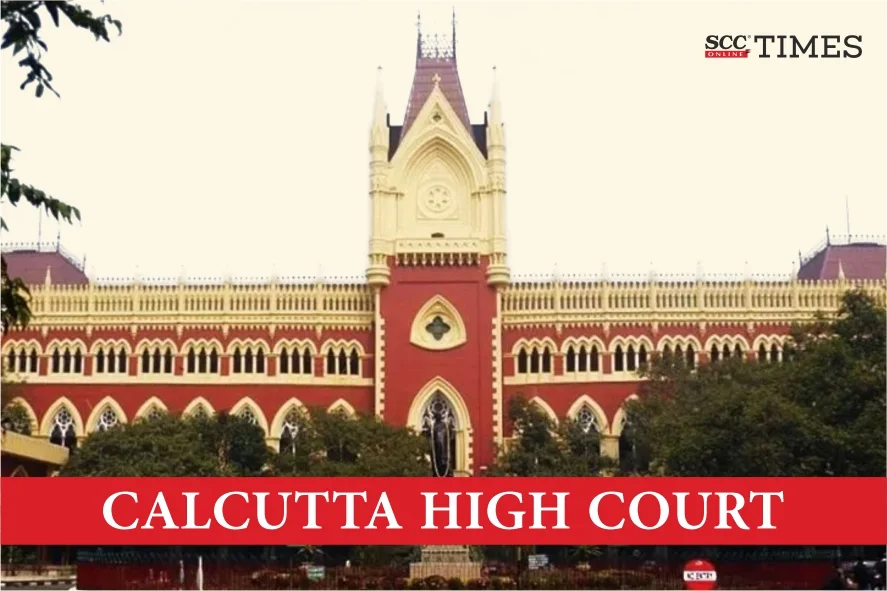Calcutta High Court: In a revisional application filed for quashing the proceedings pending before the Additional Sessions Judge (‘ASJ’), Fast Track Court for the case filed in Baguihati Police Station dated 28-10-2010 under Section 306 of the Penal Code, 18601 (‘IPC’) and all the orders passed therein, a Single Judge Bench of Ananya Bandyopadhyay, J. quashed the pending proceedings as well as the orders passed by the ASJ, Fast Track Court and said that the allegation of commission of abetment of suicide levied against the petitioners was improbable.
Background
Petitioner 1 (wife) married her husband on 02-03-2010 and resided separately because of her in-laws. On 28-10-2010, the complainant (father-in-law) got the information that his son had committed suicide by hanging himself in the dining room of his flat with a nylon rope on 27-10-2010 at 11:00 pm.
Subsequently, the father-in-law approached the Baguihati Police Station to lodge a written complaint dated 28-10-2010 alleging the wife along with the other petitioners for commission of abetment to suicide.
It was also alleged that the husband had committed suicide because the wife had suppressed the fact that she had been married earlier which caused him to suffer mental agony and compelled him to commit suicide.
The petitioners filed a petition praying for discharge on 15-05-2012 before the ASJ, Fast Track Court which was rejected on 26-06-2012, and the date 17-08-2012 was fixed for framing of charge. Thereafter, the present application was filed.
Analysis and Decision
The Court stated that the statements recorded under Sections 1612 as well as 1643 of the Code of Criminal Procedure, 1973 did not reveal that the husband was subjected to prolonged and continuous mental or physical torture or cruelty by the petitioners which compelled him to commit suicide barring any other alternative.
The Court said that the husband along with the wife resided at a separate accommodation and there was no indication of him being captivated and confined at a certain place that restricted his freedom of movement and prevented him from contacting his parents and family members. It was also said that being an adult male, the husband had the liberty to communicate with his family members despite the displeasure of the petitioners.
Moreover, the Court stated that the document of the couple’s marriage indicated that the wife was a divorcee at the time of the marriage. Therefore, the Court said that the allegation of suppression of the earlier marriage of the wife was eventually obliterated.
Further, the Court said that to constitute an offence under Section 306 of IPC, there should be instances of abetment under Section 107 of IPC4 to frustrate the victim to the extent of resentment, despair, and anguish which compels him to commit suicide.
The Court stated that the husband had on his own, locked the wife in the room from outside and hanged himself and that it was beyond the knowledge and control of the wife to have immediately rescued her husband.
Further, the Court stated that shocking acts by a person due to uncontrollable emotions cannot be perceived or fathomed and that one can be hysterical even on a very small disagreement and may resort to extremities which cannot be termed as instigation, inducement, or abetment to commit suicide. The Court said that the commission of a cognizable offence was improbable in the present matter.
Thus, while allowing the present application, the Court quashed the proceedings pending before the ASJ, Fast Track Court along with all orders passed therein including the order dated 26-06-2012 passed by the ASJ.
[Joyeeta Saha v. State of West Bengal, 2024 SCC OnLine Cal 7467, Decided on 31-07-2024]
Advocates who appeared in this case :
For Petitioners — Advocate Amartya Ghosh, Advocate Siddhartha Paul, Advocate Sourayadeep Ghosh
For Respondent — Advocate Avishek Sinha
Buy Code of Criminal Procedure, 1973 HERE
Buy Penal Code, 1860 HERE
1. Section 108 of the Bharatiya Nyaya Sanhita, 2023
2. Section 180 of the Bharatiya Nagarik Suraksha Sanhita, 2023
3. Section 183 of the Bharatiya Nagarik Suraksha Sanhita, 2023
4. Section 45 of the Bharatiya Nyaya Sanhita, 2023









